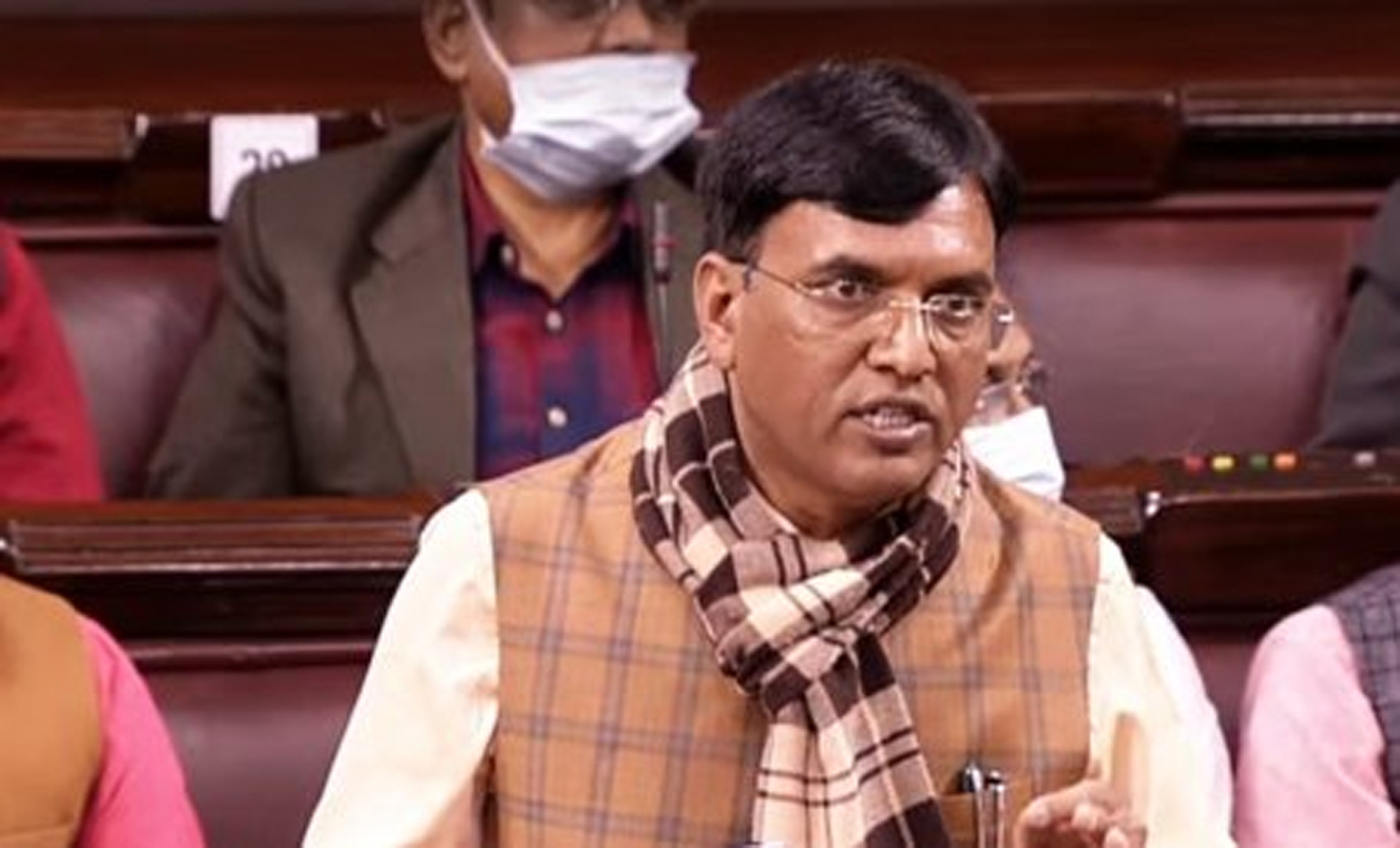New Delhi, Feb 8: Omicron variant is the dominant variant in the country presently and the current surge of COVID-19 cases in the country is showing a sustained declining trend since January 21, Union Health Minister Mansukh Mandaviya informed the Rajya Sabha on Tuesday.
With the reporting of Omicron, a highly mutated variant of SARSCoV-2 virus and its classification as a Variant of Concern (VoC) by the World Health Organization (WHO), the Union Ministry of Health revised its ‘Guidelines for international arrivals’, Mandaviya said in a written reply.
“Omicron variant is the dominant variant in the country presently. The current surge of COVID-19 cases in the country is showing a sustained declining trend since January 21, 2022,” he said.
Following a risk based approach, provisions for mandatory pre-departure and post arrival RT-PCR testing on day 8th of arrival and a mandatory home quarantine for 7 days have been made in the present guidelines for all international travellers to India.
The Ministry of Health continues to provide technical guidance for managing various aspects of COVID-19 including containment and surveillance, testing, clinical management protocols, post-COVID sequale, etc., the minister said.
The clinical management protocols have also been disseminated under the Ministry of Health’s Center of Excellence initiative for all states in collaboration with AIIMS, Delhi and Indian Medical Association.
Besides regular review meetings at the level of Union Health Minister with all relevant stakeholders including subject experts, review meetings with states and UTs through video conferencing have been conducted regularly to review preparedness and response measures to address COVID-19 pandemic, he said.
States and UTs have been advised to undertake several activities which include strict monitoring of International travellers in the community, contact tracing of positive individuals and follow up for 14 days, genome sequencing of positive samples through INSACOG Labs in a prompt manner, continued monitoring of areas where cluster of positive cases emerge and further strengthening of COVID-19 testing infrastructure.
They have been advised to ensure preparedness of health infrastructure (availability of ICU, oxygen supported beds, ventilators, etc.,) and upgrading health infrastructure under ECRP-II including in rural areas and for pediatric cases, commissioning all PSA plants, ensuring COVID-19 vaccination for the eligible population and ensuring adherence to COVID Appropriate Behaviour. The Union Health Ministry continues to provide support to states and UTs to enhance preparedness and response capacities against COVID-19 and other public health emergencies.
Funding support is also provided to states and UTs through National Health Mission, State Disaster Response Funds (SDRF) and Emergency COVID-19 Response and Preparedness packages. Under ECRP Phase II, a package of Rs. 23,123 crore (with Rs. 15,000 Cr as Central Component) has been approved.
Of this, as on 31st January 2022, funds to the tune of Rs 7245.95 crore have been released to states and UTs as part of central component to strengthen health infrastructure to manage any surge in cases, Mandaviya stated. (Agencies)


